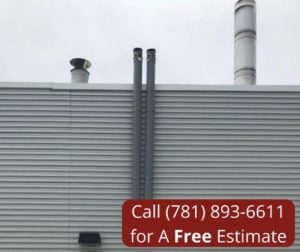What Is Chimney Venting? Why Do We Need It?
Welcome to fall colors and temperatures!
As our thoughts turn to get ready for the change of season and staying warm, it is important to think of safety and efficiency.
We don’t expect you know the workings of your chimney or fireplace, so we wanted to touch upon probably the most important function of the chimney – venting. The chimney’s venting system is essential to ensure combustion products exit the home while reducing carbon monoxide risk. This applies to both your fireplace and heating systems.
 Without venting, the combustion pollutants remain in the living space or can transfer throughout the home through cracks and gaps. Please read more here to understand the types of venting and what you need to know.
Without venting, the combustion pollutants remain in the living space or can transfer throughout the home through cracks and gaps. Please read more here to understand the types of venting and what you need to know.
Chimney venting is when the by-products of combustion are exhausted through the chimney to the atmosphere. This passageway is called the flue.
This applies to both your fireplace (or wood stove), and likely, your heating/hot water equipment. The exhaust for your heating equipment may be installed inside your existing masonry chimney or through a separate stack. Approved condensing boilers can also have PVC or polypropylene venting installed through a vertical vent if the chimney allows.
For a chimney venting project, it is important to hire a chimney company that knows how to collaborate with other teams. Boston’s Best Chimney is experienced in working with engineers, plumbers, and contractors to complete chimney venting projects properly. Click here or call (781) 893-6611 to set up a free estimate.
Why Is Chimney Venting Important?
Chimney venting is essential for your chimney. Here are some reasons why:
1. Chimney vents protect the building from heat transfer. Without chimney flue vents, heat can move through the chimney fast enough to cause fires in adjacent combustible materials.
2. Properly installed chimney vents carry gases up and out of the building. Without proper venting, the flue gases can seep into the home causing a fire hazard or carbon monoxide issue.
3. Chimney vents protect the interior masonry from corrosive byproducts of combustion. If flue gases were allowed to penetrate the masonry, the deterioration would accelerate the aging and structural integrity of the chimney.
4. Chimney vents will prepare you for your boiler flue inspection. Did you know that you should get your boiler inspected annually? Having proper chimney vents setup will get you ready to pass this important inspection.
Get Your Venting Installed!
Chimney venting will keep your home safe and equipment operating at maximum efficiency’s interior safe. As the Chimney Safety Institute of America says, “you most certainly want to keep your chimney and venting system in mind as an integral part of an efficient system.” If your chimney does not have proper venting, do not hesitate to set up a free estimate with us to learn more about this service. Click here or call (781) 893-6611 to get in touch.
The post What Is Chimney Venting? Why Do We Need It? appeared first on Boston's Best Chimney.